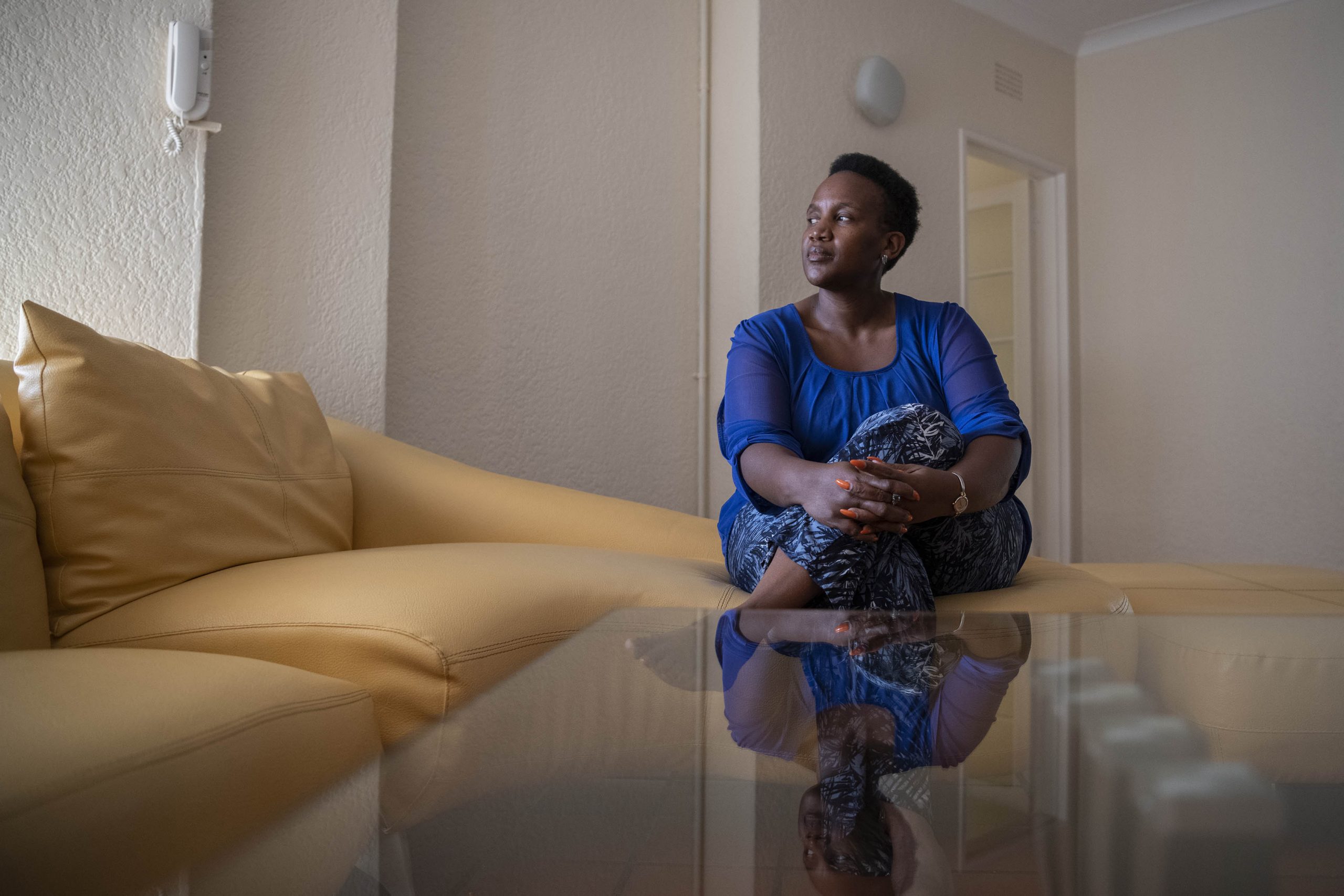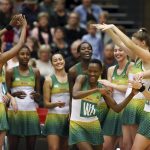Nomsa Mahlangu excited to lead Africa
The lifelong sport advocate has a big task ahead of her as the first woman to head the Federation of Africa University Sports. But the challenge doesn’t faze her.
Author:
27 April 2019

Nomsa Mahlangu’s presence is felt the moment she steps into a room. Her confidence and assertiveness is often mistaken for arrogance. Many feel not only intimidated by her, but also that she is unapproachable. Mahlangu reckons this stems from her no-nonsense approach to matters of life and sport.
“People don’t know how to deal with the truth. People are not comfortable with straight talkers. A lot of people find it easy to sugar-coat things. Unfortunately for me, I don’t like sugar-coating anything because I don’t want anyone to misunderstand what I am saying. The problem with us is that we want to be liked by people, even for the wrong reasons,” she said unapologetically.
Her frank approach has earned her respect among the sport fraternity throughout the continent, where she has served in various roles at the Confederation of African Football (CAF).
Related article:
Mahlangu has been a servant of sport since her university days and the 45-year-old’s passion runs just as deep years later. As a student activist with the South African Students Congress, during her days at the now defunct Vista University, she saw the need to start a women’s football team.
“I was not the best player, but I had to play because I was the person initiating this thing. I used to be a goalkeeper. It started there for me, when I wanted opportunities for girls within the university. I have never looked back,” she said.
Mahlangu currently heads the University of Johannesburg’s sport division as the senior director. UJ is not the first university at which Mahlangu has served. She headed the department of sport administration at the Durban University of Technology and served as sport manager at the University of the Free State.
‘From carrying chairs to sitting at the top table’
Being voted the president of the Federation of Africa University Sports (Fasu) is a just reward for all the years she has put into sport in Africa. By virtue of being president of the continental body, she will also have a seat on the International University Sports Federation’s (Fisu) executive committee.
“The path has been from carrying chairs to sitting at the top table. I really appreciate all the steps I had to get through, because they have shaped me and have given me vast knowledge about what goes on for you to be able to put a successful event together,” she said.
But this is only the beginning for Mahlangu, despite having served sport for many years. As the first female president of Fasu, expectations about what she can deliver during her tenure are high. She will be at the helm for four years, leading a 10-member executive committee. But the former South African Football Association national executive committee member is not fazed by the challenge that lies ahead of her.
Related article:
“The challenge for the new executive committee and I, is for us to try and make the structure self-sustainable, where we are able to give grants to our members to ensure that they come to competitions. But it’s also key that we provide assistance in terms of more programmes for our members,” she said.
Mahlangu said she believes university sport is the gateway to prosperous professional careers. It has given birth to many such careers, including that of 400m Olympic record holder Wayde van Niekerk, two-time Olympic champion Caster Semenya, sprinters Henricho Bruintjies and Akani Simbine, and Springbok winger Aphiwe Dyantyi.
Of the Spar Proteas netball team that recently stunned England in the Sanzea Quad Series, 90% played the sport at varsity level before graduating to the national team. Marykya Holzhausen, Sigrid Burger, Lenize Potgieter and Karla Mostert are now all playing professional netball in England, New Zealand and Australia.
Using sport to change lives
“I believe that within universities, we have got a great opportunity to impact on the lives of those that are going to become leaders in society. For me, sport is more than just that. To a lot of people, sport is about winning trophies and the likes. But for me, sport is a catalytic instrument to a whole lot of diverse things. It’s an opportunity for someone to get educated, an opportunity to see the world. I use sport to change lives,” said Mahlangu.
She said that by making universities hubs for high performance, they will produce complete athletes who won’t have to depend on sport alone for their livelihoods.
Student athletes from around the world are currently preparing for the World Universiade (University Student Games). The competition is the perfect platform to test their abilities ahead of events like the Summer Olympics in Tokyo in 2020 and the World Athletics Championships, which take place in Doha in September.
Mahlangu headed the delegation for Team South Africa at the 2013 University Student Games. They won 14 medals, their highest medals tally in the history of South African student sport. She is confident that the team taking part in this year’s competition will be just as successful, if not more so.
World Student Games as preparation for the Olympics
Napoli, in Italy, will host the competition from 3 to 14 July. University Sports South Africa (Ussa) will be taking part in six codes. Ussa will be pinning most of their medal hopes on the athletics and swimming events. The women’s football team that represented the country in the 2017 competition finished fourth and Mahlangu is hopeful for a podium finish this time round.
“The Olympic qualifiers are starting. We have World Student Games this year, take the team sheets of teams that will be there, specifically Brazil and the Koreans, compare that sheet to the athletes that will be representing those countries at the Olympics – 60% of those players would have been at this year’s Student Games. Countries deliberately use student competitions to prepare. It would be lovely if we had the same [strategy] in South Africa,” she said.
Mahlangu suggested that federations assume universities want to take over sport in the country. These are perceptions that need to change, she said.
Related article:
“Rhoda [Mulaudzi] and Fifi [Refiloe Jane] were different players after the World Student Games. Check the players who will represent us in Napoli. They, too, will be different and will become household names after the experience there,” she added.
Women’s football and women in football are major talking points in the country, especially since Banyana Banyana qualified for the Fifa World Cup for the first time. Mahlangu is making waves in football, too, but quietly.
She is a member of the Safa women’s football committee and serves as CAF’s general coordinator and match commissioner, a position she has held since 2016. Although women’s football in South Africa is growing steadily, she feels there is still much that can be done.
“We’re doing very well at national team level, I mean we have qualified for the World Cup for the first time. But in all honesty, at regional and LFA [Local Football Associations] levels, it is heartbreaking,” Mahlangu said.
“Last year, as UJ, we started a school’s league, which we funded ourselves. But it caused a lot of stir because people tend to think all of us do things because it is some sort of a campaign. I’m not in life to campaign, but to make a difference.”



